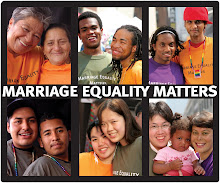 Two scenes from new faculty orientation:
Two scenes from new faculty orientation:An invitation to network
The administrator-in-charge introduced two men, fourth year professors, who explained that they'd realized it was easy to work at New U for several years and not meet anyone outside their department. They had decided to do something about this, and invited everyone to join them for drinks on the first Friday of every month, at a nice local pub. They were enthusiastic, and I admired their generosity in thinking to visit the new faculty (even as I thought that Friday afternoons aren't the best time for me to head out on a quasi-social, quasi-work event: Friday afternoons are kid time (often mood-management time) around here. "It's Friday afternoon, so it's a good time to meet colleagues in other departments, " one said. "And if you have kids," the other added, "it's a good time to get away from them."
Assuming you have someone to take care of them, I immediately thought.
Question about support
Later on, there was a panel discussion addressing "what I wish I'd know then that I know now." Several people who'd been at New U for 5-15 years offered various pieces of advice: about dealing with weather, about time management, about university bureacracy, about where to eat well on campus. In the Q&A, one of the new women faculty asked whether there were resources for faculty with young children who aren't yet in school. "Great question," one panelist said. "There's a university child care center, and efforts to expand it and create more flexible hours are underway. Child care has been at the top of the list of the faculty women's association for years now."
It was fitting that these scenes occurred the day I was due to review (for Mother Talk) Mama PhD , a collection of 35 essays about motherood and academia, edited by Elrena Evans and Caroline Grant. Divided into sections addressing questions about whether to have children or not, or when to have children in an academic career; tensions and joys in the juggling of motherhood and academic jobs; experiences after leaving academia; and visions of the future, the collection is a smart, funny-sad-crazy making-amazing-wonderful set of pieces that had me nodding as I read. The authors come from a variety of fields, and a range of institutions. This collection is well-worth reading for anyone considering an academic career, and also for any administrator mentoring faculty.
Mama PhD won't surprise anyone who's a reader of academic blogs. After all, there are lots of outlets these days for reading good personal writing on motherhood and academia, and I wondered whether I'd find the essays redundant or compelling. They were definitely compelling, though. I read quickly, learning about the different ways institutions create barriers for mothers advancing in their careers, or make it easier for those with children to advance. These are eloquent accounts of what choices women have made to accommodate their kids and careers.
Academia is both the perfect place to be a working mother and a horrible place to be a working mother. I liked the way the essays examined both sides of this: for every story about unsupportive colleagues or chairs there's one about the ways mentors and friends eased the way. The contributions by women who had children in graduate school, too, opened my eyes to another dimension of academic parenting issues. It's the specifics of the stories that are so illuminating, and it's the stories that need to be shared. On any campus, it's easy for challenges of combining motherhood and academic work to be pushed under the rug. No one wants to admit to failure, after all, and we PhDs are the people who were good at school. It's easy to look at other people and assume they have the work/life balance thing perfectly honed. The contributors here show that nobody has it down pat. It's all too complicated. Whether we opt for tenure-line positions or untenureable positions; full time academic work, part-time academic work, nonacademic work, or staying home with children, the relationship between feeding the intellectual drive that led to the PhD and tending to the emotional relationships within the family just isn't easy. Every day is a work in progress, and every day opens up moments when we might feel that one part of our lives gets short shrift compared to another. Reading Mama PhD is a reminder that we needn't be alone in navigating those issues.
I bet my new colleagues have no idea at all how the idea of a Friday afternoon networking/friend-making session at a pub just isn't easy for a mother with young kids at home. And I bet the administrator who planned our orientation session never considered having a set of speakers talk about how they juggled their kids and their career. But New U might be an even better place to work if the people charged with welcoming new faculty took it as an institutional problem, not just a personal problem. And that's the conclusion you'll come to about whatever college or university is in your life after you read Mama PhD.




2 comments:
Perhaps you can introduce those topics in next year's orientation.
I've been hesitant to comment. But anyways, here goes. At my campus, I wouldn't have much hope that the male faculty who arranged the Friday meetups really wanted to include female faculty. If confronted, they'll mumble about how feminist they are, but out the other side of their mouths, they're complaining about babysitting and why their working wife doesn't have dinner on the table when they walk in the door. (At least that's the complaining I overhear from male colleagues.)
Is there a time/place when a meetup thing would make sense for people who are primarily responsible for kids, especially little kids?
Post a Comment